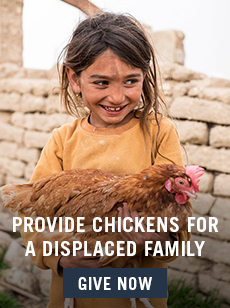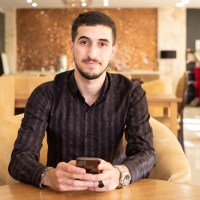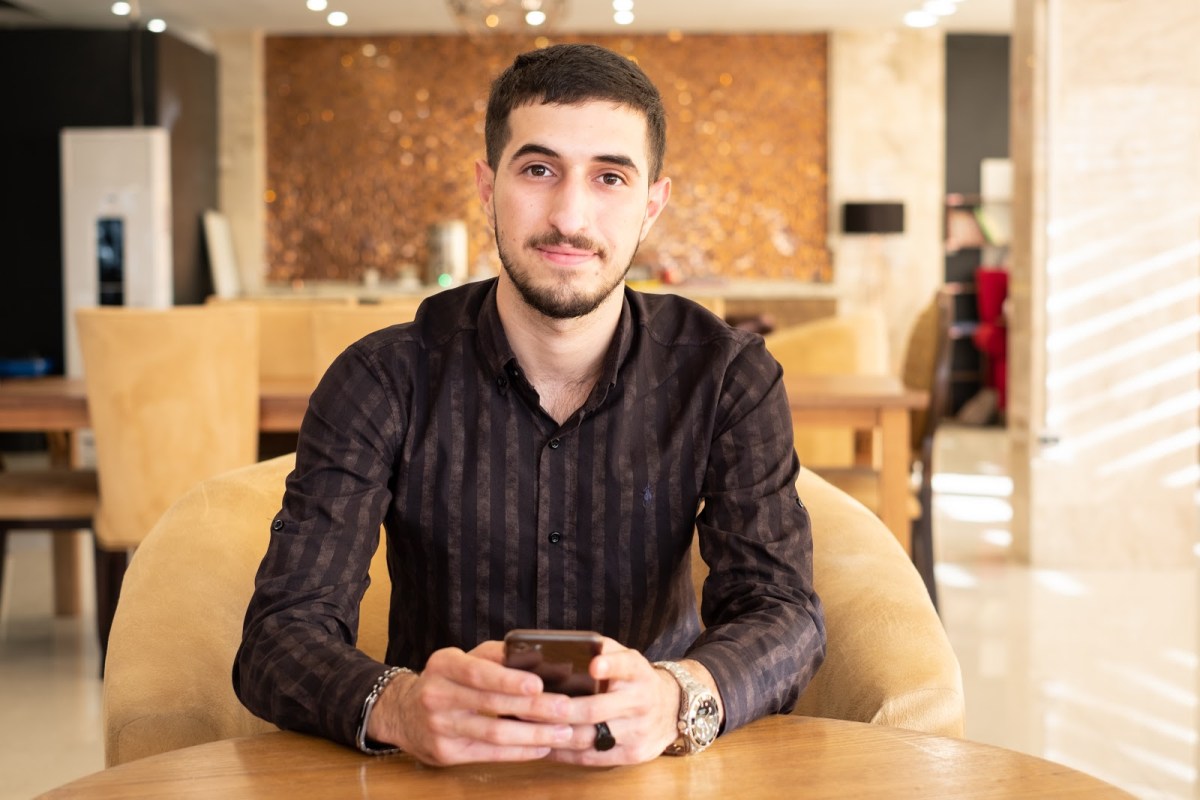Bombs were still falling during our first visits to the city of Mosul, Iraq, as the war raged to liberate the city from ISIS.
We dodged snipers and met hungry residents desperate for food. Our cars were nearly swallowed whole by airstrike craters in the middle of the main roads. During rainstorms, we had to dodge little boys who stripped down to their underwear to swim in those craters-turned-pools.
Hardly seems like the ideal place to start a cutting-edge tech hub. Except, it’s perfect.
It’s perfect for Ali, a med school graduate who was displaced to Mosul during the war. For Ali and those who live in countries picked apart by war, jobs are a key component to a life after war. To a more whole, peaceful future.
Everyone longs for a chance to work, to provide for themselves and their family, and to have agency over their life. War and systemic violence rob young people of that chance.
We launched our first tech hubs in Iraq to provide technical training, professional development, and one-on-one coaching that leads to real, actual paying jobs for Syrian refugees, for Iraqis displaced inside their own country, and for vulnerable members of the local community.
Our goal is admittedly a big one: to revolutionize the way refugees work. Everywhere.
But can it work?
The short answer: yes. Follow-up surveys with each graduate speak to both professional and personal success they’ve experienced:
- Nearly 15x average income growth 6 months after entering the program
- 94% of alumni now report a sense of control over their own future
- 91% feel that the tech hubs have added to their family’s future security
- 93% report a positive attitude about their self-worth
- 86% are confident where their next meal will come from
Not even the COVID-19 pandemic could stop the impact of our tech hubs. When Iraqi cities were placed under lockdown last spring, we made the natural leap to online learning—something new for most participants—and continued providing opportunities for online work. In fact, coaches and instructors were able to model the virtual work environment and professional digital practices for participants from all over Iraq—who continue to land jobs, start businesses of their own, and find new ways to work.

A New Way to Work
It’s easy to think that computers and machines can do everything. But that’s not the case. There are plenty of tasks that still require human judgment. And that need is responsible for a whole new way to earn income: microwork.
Microwork takes large, judgment-rich projects, breaks them down to the smallest possible parts, and distributes those tasks to a wide number of people who work on a “digital assembly line” and are paid as they successfully complete tasks.

Teaching machines the shapes of cars, for example, is a pretty simple task. But imagine a more complex project, like one taken on recently by microworkers trained at our tech hubs: pouring over photos of dumped medical waste, and picking out the shapes of individual items in the trash, like syringes, or face masks. Well-annotated photos can help medical systems improve recycling programs, saving millions of dollars. What seems like a random task is actually the backbone of big business. And it can be performed anywhere there’s an internet connection.
Tech hub participants who study microwork and data analysis are becoming part of the first machine-learning workforce in Iraq. They get an introduction to data entry, collection, and analysis. They receive hands-on training, along with a chance to participate in income-generating projects with international clients. Over time, the skills and knowledge acquired in the microwork digital community can be leveraged into new job opportunities.
Microwork is a bridge, allowing workers to gain experience and income, while propelling them forward in the digital workplace. If there is one thing young people need when life is torn apart by war, it’s more bridges.
Microwork is also scalable in a way that other job-creation programs aren’t—so scalable that it has the potential to bring income-earning opportunities to thousands, if not millions of displaced and vulnerable young people in the coming years.

An App That Brings Hope
The innate flexibility of app-based microwork builds a bridge to opportunity that transcends geographic boundaries.
Because microwork tasks can be performed anywhere there’s an internet connection, by anyone with a smartphone, it opens up the possibility of paid work to many who have been excluded from the workforce.
Moms can annotate photos while their children nap. Folks with mobility issues can work from home without the complications of getting to an office. And those displaced by war, or unable to return home after years of displacement—they don’t have to give up their income! They take their work with them, wherever they land.
By the end of November, our microworkers generated $67,560 in personal income through 18 machine learning projects for private sector clients. And soon, they will have the chance to boost their earnings even more.
Our own microwork app—a remote work portal—is in the early stages of testing. We believe we can bring hundreds of new, consistent, online job opportunities to Iraq in 2021.
“The good thing about microwork, which I love, is that I can have other work as a second job.”
It’s important for Ali, a tech hub graduate trying to build a life for himself in Mosul, to be able to say yes to work opportunities that come his way. He has a long way to catch up—his family lost their home and everything in it to the war with ISIS. With microwork, he doesn’t have to choose.
“I can work remotely, especially in this COVID-19 situation. And I feel that I am playing games while working.”
Investment in tech, in coaching for Iraqi and Syrian young people, and in developing new digital work platforms—it can pave a way forward, despite the impact of war. And your investment now will help us take successes in Iraq to other parts of the world.


